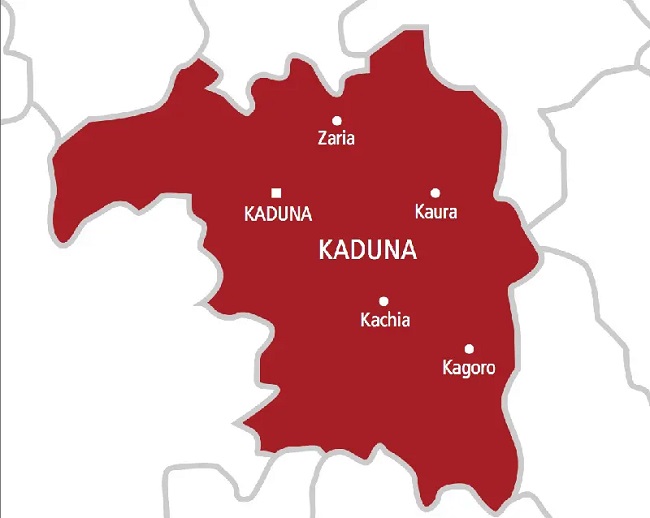Kaduna State Government has embarked on an ambitious free screening programme targeting 500,000 residents for Non-Communicable Diseases (NCDs).
Governor Sani disclosed this during the official launch of “Project 10 Million—Know Your Number, Control Your Number”, held in Kaduna on Monday.
The Governor, who was represented by his Deputy, Dr Hadiza Sabuwa Balarab, said the initiative is borne out of the understanding that knowledge is power.
He added that the initiative, therefore, is about empowering individuals with the critical information they need to make informed decisions about their health.
Gov Sani believes that if the State can just help about 500000 people “know their numbers,” whether that’s their blood pressure or blood sugar, we can drastically change the trajectory of their lives—and the lives of those around them—and thus serve as a platform to sustain control of these numbers.
According to him, it is not just another healthcare programme; it is a comprehensive intervention strategy being undertaken by the Nigeria Health Commissioners Forum to combat the rising prevalence of Non-Communicable diseases (NCDs).
“Our approach in Kaduna State will be both strategic and inclusive, covering all three senatorial zones through designated screening locations, as mentioned by the PS MoH in her remarks
“Let’s imagine a Kaduna State where individuals not only understand their health metrics but are also equipped with the tools to take charge of their well-being. I believe this is not a distant dream, but that it is a very achievable reality. You will agree with me that knowledge leads to awareness, and awareness leads to action.
If we know our numbers, we can take proactive steps to manage our health, make lifestyle changes, and seek medical guidance when necessary. We can then break the cycle of complacency and ignorance that has allowed these diseases to thrive.
The statistics concerning NCDs in Nigeria are alarming and cannot be ignored. These silent killers—primarily cardiovascular diseases, diabetes, and hypertension—are responsible for 27% of annual deaths in our country, claiming approximately 447,800 lives each year.
“More disturbing is the fact that the likelihood of dying from these conditions between ages 30 and 70 stands at 17%, striking at the very heart of our productive population.
“I understand that this initiative we are launching today is comprehensive and that beyond screening, other services will also be provided, such as:
“Health education on major NCDs: blood pressure measurement; blood glucose testing; counselling and referral services. Data collection to inform future health policies
“We recognise that the battle against NCDs is complicated by various risk factors, including tobacco use, physical inactivity, unhealthy diets, and air pollution. This is why our approach emphasises both detection and education.
“I am pleased to note that this initiative aligns well with this administration’s SUSTAIN Manifesto, particularly Agenda 6, which focuses on improving human capital development.
“When we prioritise preventive healthcare and early detection, it would mean we are making substantial investments in the future of our state. A healthy population is crucial for economic development and social progress.
“I must at this juncture extend special commendations to Team Health and all those who have worked tirelessly to bring this initiative to fruition. Your commitment to public health is truly remarkable.
“To the citizens of Kaduna State, I urge you to take full advantage of this free screening programme. Knowing your health status is the first step to a healthier life.
The screening locations have been strategically chosen to ensure accessibility for all residents, particularly those in underserved communities.
“Kaduna State is proud to be among the first states to launch this programme, demonstrating our position as a leader in healthcare innovation in Nigeria.
“Let me specifically commend our dear governor, Senator Uba Sani, for approving funds for this exercise, which further demonstrates his compassion and commitment to the wellbeing of Kaduna citizens.
“This programme is not just about meeting healthcare targets; it’s about saving lives, protecting families, and building a healthier, more prosperous Kaduna State.
“Thank you all for joining us in this important endeavour. Let us move forward with courage and an unwavering commitment to health and wellness for all.
“Together, we will change the narrative of non-communicable diseases and pave the way for a healthier, brighter future.
“As I declare this programme officially launched, let us remember that health is not merely the absence of disease but a fundamental human right and the foundation upon which we build our dreams and aspirations,” she said
In his goodwill messages, the representative of the World Health Organisation (WHO), Dr Ahmad Bello, disclosed that the Nigeria Health Commissioners Forum (NHCF), through Project 10 Million, has set a transformative goal: to screen and treat 10 million Nigerians, bringing vital health services closer to communities across all 36 states and the Federal Capital Territory.
“This is a crucial step towards closing health gaps, as we aim to ensure that every new case is promptly confirmed and linked to treatment and that existing cases receive the follow-up care they deserve.
“Our collaborative efforts today extend beyond immediate screening and care, as this project will enhance data collection on NCD prevalence, strengthen multi-sectoral partnerships, and contribute to the creation of lasting NCD registers in all states, including Kaduna.
“Together, these actions will inform policies, advance health planning, and ultimately improve the well-being of our people.
“WHO and its partners applaud the visionary leadership of His Excellency, Senator Uba Sani, and the steadfast commitment of Kaduna State’s health stakeholders, who continue to prioritise the health and well-being of every citizen. WHO and all partners here remain committed to providing ongoing support as Kaduna State moves forward in achieving healthier, more resilient communities.”
ALSO READ THESE TOP STORIES FROM NIGERIAN TRIBUNE
